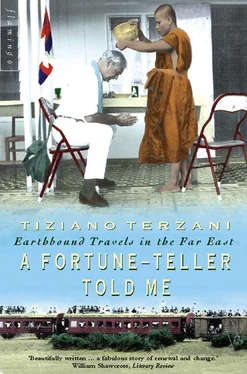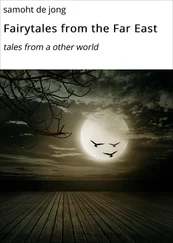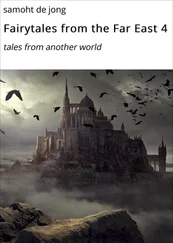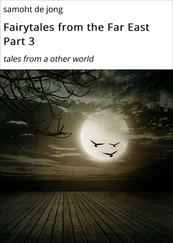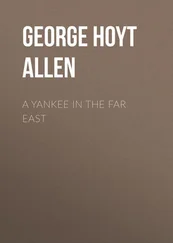If I had obeyed all the warnings and prohibitions, my life would have been much more complicated than I had already made it by renouncing flight. On an Indonesian island I met a bomoh, an expert in black magic, who told me I must never, never, piss against the sun. Another said not to piss against the moon. In Singapore a shaman, a woman who spoke in rhyme in ancient Chinese, counselled me never again to eat dog or snake. Another seer told me never to eat beef, another to remain strictly vegetarian for the rest of my life. An old lama in Ulan Bator read my whole destiny in the cracks in a sheep’s shoulderblade burnt in a slow fire of dried cow-dung, and then handed me a little packet of dried, perfumed grasses from the Mongolian plain, to be used like smelling-salts in the event of danger. A Buddhist monk outside Phnom Penh splashed me, fully dressed as I was, with the same water he used to treat local epileptics.
Many of the fortune-tellers were just colourful characters, at times out-and-out charlatans just trying to make a living. Some, however, were truly remarkable, with a rare understanding of the human condition, an unusual psychic gift that enabled them to read other people’s minds or to see ‘scars’ undetectable by the normal eye. Some left me wondering if indeed they had an extra sense. Is it possible? Is it possible that over the millennia man has lost through disuse certain capacities which were once natural to him, and which survive today in only a few individuals?
The history of the world is full of prophecies and portents, but we tend to feel, especially in the West, that all this belongs to the past. In Asia, however, the occult is still invoked to explain current events at least as often as economics or, until recently, ideology. In China, in India, in Indonesia, what we call superstition is still very much part of everyday life. Astrology, chiromancy, the art of reading the future in a person’s face or the soles of his feet or the tea leaves in his cup, play a very substantial role in the life of the people and in public affairs, as do the practices of healers, shamans and the masters of feng-shui, the cosmic geometry. The name to give a child, the purchase of a field, the sale of a portfolio of shares, the repair of a roof, the date of a departure or a declaration of war, are governed by criteria that have nothing to do with our logic. Those criteria determine how millions of marriages are arranged, how thousands of buildings are planned and constructed. Political decisions which affect whole populations are based on the advice of individuals expert in consulting the occult.
People have always searched for the meaning of life, trying to comprehend its mystery and find a key to the future, and to influence their fate. Chinese, as a written language, was born not as a means of communication between men, but as a way of consulting the gods. ‘Should I make war on the neighbouring state or not?’ ‘Will I win the battle or not?’ A king wrote these questions on a flat bone which was then pierced with a red-hot needle. The divine answer appeared in the cracks caused by the heat – one had to know how to read them. Those bones, with those ideograms of 3500 years ago, are the first known Chinese ‘manuscripts’.
Today the Chinese, especially those in the South-East Asian diaspora, still constantly interrogate their gods, for example by tossing up two pieces of wood shaped like large beans in order to receive counsel from heaven. If both pieces fall face up, the answer is yes, face down means no, one up and one down means try again.
The old fortune-teller’s prophecy offered me a chance to learn about the different ways in which people seek this kind of advice, to explore new paths of knowledge, to look into the mysterious world of intuition and suggestion that so often beckons to us but is seldom taken seriously. My study of superstition was also a response to a changing Asia: I wanted to see what remained of that ‘mysterious East’ which has for centuries attracted so many Westerners. The newspapers say Asia is going through a period of boom, that the next century will be Asia’s. This excites the bankers and financiers who see the world through the graphics on their highly sophisticated computers. But in reality Asia is not only a continent experiencing joyous economic growth: it is also killing itself by pursuing a model of development which it has not itself chosen, a model imposed upon it by the logic of profit which today seems inexorably to dominate all human behaviour.
Ancient cities are being bulldozed to make room for anonymous ‘modern’ developments; a whole popular culture is being pushed aside by the irresistible force of new models from abroad, spreading by satellite to the remotest hut in the Burmese jungle or on the Mongolian plain. A fearful wave of materialism is engulfing everything and everyone. Yet even among the young in Asia, as a reaction against this tendency and the immense disorientation it has produced, there is a revival of interest in the old beliefs, in the occult, in phenomena that have their roots in tradition.
Perhaps this is happening all over the world. Now that social groups are becoming increasingly fragmented and the natural world is ever more receding from people’s daily lives, now that all problems are supposed to be solved by science alone, now that death is no longer lived chorally as it still was when I was a boy, but has become a taboo more and more excluded from life, people are more perplexed than ever about their destiny, and look for solace, understanding, friendship and hope wherever they can find it. That is why the East, with its aura of exoticism, has again become a source of inspiration for many young Western people, who look to Eastern religions and practices for the answers they no longer seem to find in schools or churches at home. More than the great philosophers of the homegrown variety, Oriental mysticism, Buddhism and Asian gurus seem to be able to help those who want to escape the prison of consumerism, the bombardments of advertising, the dictatorship of television. Western youth, coming from a super-organized world, where everything is guaranteed, where even their desires seem dictated by an interest which is not their own, is more and more interested in exploring Oriental paths of spirituality.
On various occasions while travelling in Asia I have seen European figures cloaked in the orange or purple robes of Buddhist monks, but I had never taken much interest in their stories. This year I had a reason to stop and listen; and thus I met, for example, a former journalist, like me a Florentine, who had taken the vows of a Tibetan monk, and a young Dutch poet who had chosen an austere life of meditation in a temple south of Bangkok. Both, in different ways, were victims of the disorientation of our time. It is certainly because of this disorientation that in European telephone directories the pages listing chiromancers, astrologers and seers are growing thicker and thicker. Their clientele is no longer limited to credulous ladies, to the gullible, the lonely or the ignorant; this was another discovery I made. In the course of the year I realized that my curiosity about this twilight world was shared by a huge number of people; people you would never suspect, people who would open up and tell their stories only when I admitted that I meant to take my prophecy seriously. It may be a platitude, but the problem of destiny, of good or evil fate and how to deal with it, sooner or later arises in everyone’s mind.
The pages that follow are the story of this strange journey, of my year with my feet on the ground…or should I say less than ever on the ground? That would be nearer the mark, for never have I flown without wings as I did in those thirteen months. A year of thirteen months? Yes, but that will be the easiest of my explanations.
Читать дальше
